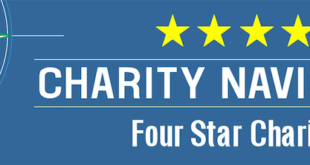A strategy for liberty must be both optimistic and realistic.Perennial optimists are sometimes tempted to ignore or minimize hazards, their answer to every challenge being somewhat lackadaisical: “Don’t worry, it will be fine.” They make the mistake of supposing all that is needed to surmount any challenge is a good bout of optimism. They can be heard, for example, assuring us that simply pronouncing the slogan “go woke, go broke” will scatter the enemies of liberty....
Read More »Why Average Goods Prices Cannot be Established
The price or the rate of exchange of one good in terms of another is the amount of the other good divided by the amount of the first good. In the money economy, price will be the amount of money divided by the amount of the first good.Suppose two transactions were conducted. In the first transaction, one TV set is exchanged for $1,000. In the second transaction one shirt is exchanged for $40. The price or the rate of exchange in the first transaction is $1,000 per TV...
Read More »Abolish all Treason and Sedition Laws
The word "treason" has enjoyed something of a renaissance in recent years—on the Left. It used to be more popular on the Right. During the Cold War, conservatives frequently employed the word to demand their ideological enemies be exiled or executed. Nowadays, anti-immigration activists frequently denounce their opponents as "the treason lobby." But it's on the Left that the word appears to have its most devoted advocates at the moment. Robert Reich, for instance, is...
Read More »Albispetition bei der KAPO eingereicht
2. April 2024 Auf der gesamten Albispassstrecke gilt ab Dienstag, 2. April 2024 eine Höchstgeschwindigkeit von 60 km/h. Die Libertäre Partei (LP) hat in nur drei Wochen fast 2’000 Unterschriften für eine Petition gegen diese Massnahme gesammelt. Grund für die Temporeduktion seien Lärmschutz und Verkehrssicherheit. Auf der beliebten Strecke gäbe es immer wieder Tempo- und Lärmexzesse. Mit der Reduktion erhofft sich die Kantonspolizei eine Verbesserung der Situation. Die...
Read More »Wisconsin Formally Ends Sales Taxes on Gold and Silver
Responding to an overwhelming groundswell of grassroots pressure, Gov. Tony Evers today signed a bill into law that secures Wisconsin’s place as the 44th state in America to end sales taxes on the purchase of precious metals.Assembly Bill 29 and Senate Bill 33, carried by Rep. Sortwell and Sen. Stroebel, respectively, enjoyed strong bipartisan support in both chambers of the Wisconsin legislature before it landed on Gov. Evers’ desk.Backed by the Sound Money Defense...
Read More »Caught in the Crossfire: The Dilemmas of India’s Right-Wing Movement
Since the inception of the NDA Government in 2014, India's right-wing has consistently performed well across all sectors of society. Both print and electronic media have been significantly influenced by this ideology. The bureaucracy and academia have, to some extent, either shifted their political leanings or have begun to accept ideologies they previously rejected. This trend is not confined to India alone; it has also been observed in Europe and the Americas....
Read More »Utah Formally Empowers State Treasurer to Protect State Funds with Gold and Silver
Utah Governor Spencer Cox has signed legislation explicitly empowering the state treasurer to protect state funds with an allocation to physical gold and silver.Sponsored by Rep. Ken Ivory, House Bill 348 permits – but does not require – the Treasurer to hold up to 10 percent of certain state reserve accounts in physical gold and silver to help secure state assets against the risks of inflation and financial turmoil and/or to achieve capital gains as measured in...
Read More »The False Consensus on Egalitarianism
The boundaries of contemporary public debate are artificially constrained by egalitarian values. Both progressive liberals and classical liberals are opposed to the more-outlandish versions of wokery, but many consider egalitarianism to be a good idea in principle as long as it is not taken “too far” by communist ideologues. The ongoing purge of diversity, equity, and inclusion (DEI) schemes at universities in Republican states has closed offices and fired staff to...
Read More »China PMI is Better than Expected but the Greenback Still Rises above CNY7.23
Overview: The dollar is trading quietly against the G10 currencies as European markets remain on holiday. Narrow ranges have prevailed. The dollar-bloc currencies are leading with minor gains, perhaps helped on the margins by better-than-expected Chinese PMI, but the Scandis, which also typically do well amid a better global growth profile are the laggards. This may speak to the light liquidity conditions. Japan may have missed a tactical opportunity to intervene to...
Read More »Population
Tu ne cede malis, sed contra audentior ito Website powered by Mises Institute donors Mises Institute is a tax-exempt 501(c)(3) nonprofit organization. Contributions are tax-deductible to the full extent the law allows. Tax ID# 52-1263436 [embedded content] Tags: Featured,newsletter
Read More » Swiss Economicblogs.org
Swiss Economicblogs.org


